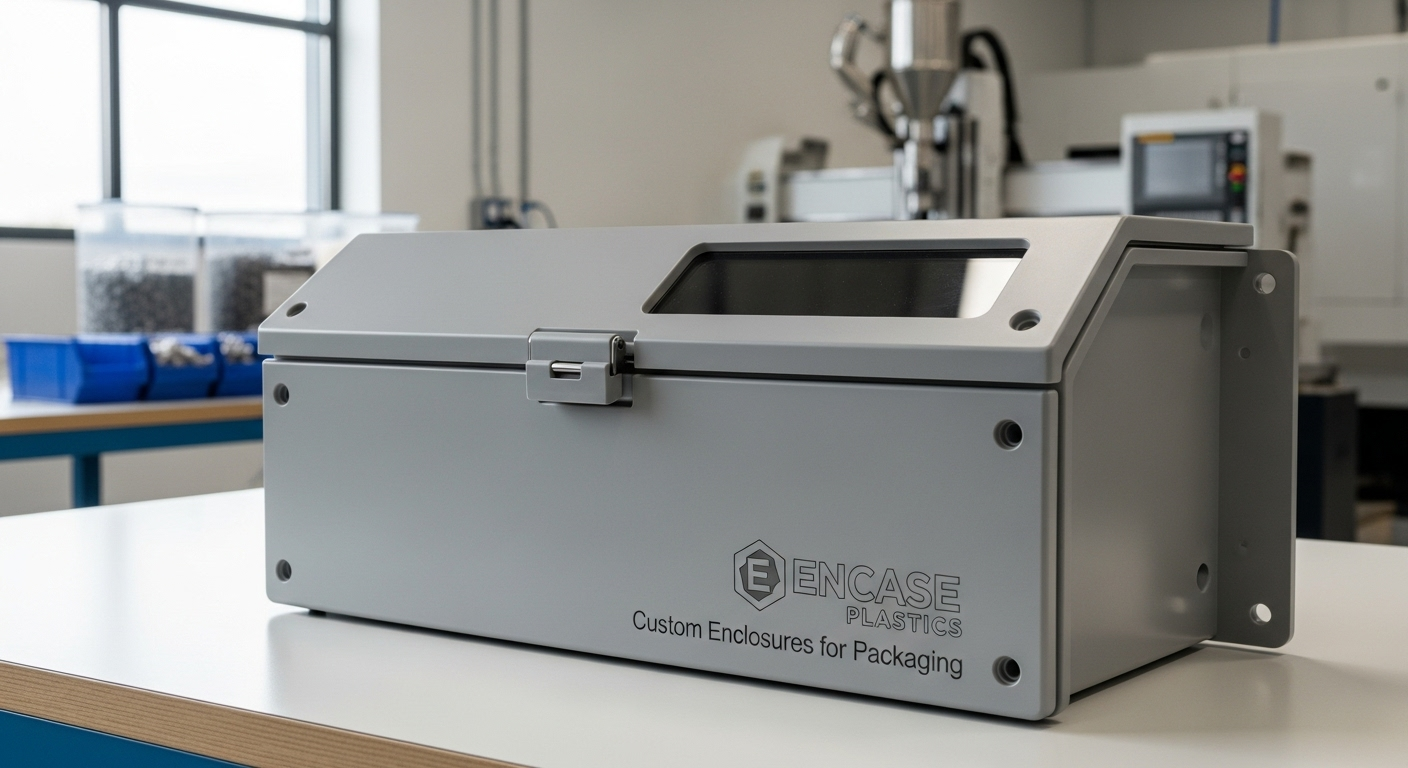
Introduction of Advanced Materials
In the ever-evolving packaging industry, the introduction of advanced materials has revolutionized custom plastic enclosure manufacturing. These innovative materials enhance durability and functionality, offering solutions tailored to specific needs. For instance, the use of bioplastics and engineered polymers has allowed manufacturers to create enclosures that are not only robust but also eco-friendly.
One notable example is the development of polylactic acid (PLA) based plastics, which are derived from renewable resources like corn starch. These materials decompose naturally, reducing environmental impact. Moreover, materials such as polycarbonate and ABS plastic are now being engineered to improve resistance to temperature extremes and physical impact, making them ideal for packaging sensitive electronics and medical devices.
By leveraging these advanced materials, manufacturers can offer customizable options that meet the diverse demands of different industries, thus enhancing product longevity and performance.
Automation in Manufacturing
Automation has become a cornerstone in the transformation of custom plastic enclosure manufacturing. Modern technology enables precise and efficient production processes, minimizing human error and reducing production time. Robotics and machine learning algorithms are increasingly utilized to streamline operations and enhance accuracy.
- Robotic Arm Integration: Robots can handle complex assembly tasks, ensuring consistency and precision.
- AI-Driven Quality Control: Advanced algorithms detect defects early in the production process, maintaining high-quality standards.
- Automated Inventory Management: Automated systems manage stock levels efficiently, reducing waste and optimizing resource allocation.
- 3D Printing: This technology allows for rapid prototyping and customization, meeting specific client requirements swiftly.
These advancements not only boost production efficiency but also enable manufacturers to scale operations and meet growing demand without compromising on quality.
Eco-Friendly Production Methods
As sustainability becomes a crucial consideration, eco-friendly production methods are gaining prominence in the packaging industry. Manufacturers are increasingly adopting practices that minimize environmental impact while maintaining product quality and effectiveness.
One approach involves using recycled materials in the production of plastic enclosures. This not only reduces waste but also conserves resources. Additionally, energy-efficient manufacturing processes, such as using solar power and optimizing machinery for reduced energy consumption, are being implemented.
Furthermore, water-based adhesives and coatings are replacing solvent-based ones, significantly lowering harmful emissions. By embracing these eco-friendly methods, manufacturers can contribute to a sustainable future while meeting the evolving expectations of environmentally conscious consumers.
Improved Efficiency and Accuracy
The integration of advanced technologies has significantly improved efficiency and accuracy in custom plastic enclosure manufacturing. By implementing smart manufacturing systems, manufacturers can optimize their operations to achieve better results.
For example, the use of Internet of Things (IoT) devices enables real-time monitoring of production lines. This allows for immediate adjustments to be made, reducing downtime and enhancing precision. Additionally, predictive maintenance tools help in anticipating equipment failures, preventing costly disruptions.
- Real-time data analytics for informed decision-making
- Predictive maintenance to minimize downtime
- Enhanced production line monitoring
These improvements not only lead to cost savings but also ensure that the final products meet the highest standards of quality and reliability. As a result, manufacturers can offer better value to their clients, reinforcing their competitive edge in the market.
Common Questions
As you explore innovations in custom plastic enclosure manufacturing, you may have several questions about the technologies and materials involved. Here are some common inquiries:
- What are bioplastics? Bioplastics are derived from renewable sources and are designed to decompose naturally, reducing environmental impact.
- How does automation improve manufacturing? Automation enhances precision and speed, reduces errors, and allows for scalable production.
- Why are eco-friendly methods important? They help reduce the environmental footprint of manufacturing processes, meeting consumer demand for sustainable products.
Understanding these concepts can help you make informed decisions about adopting these innovations in your packaging strategies.
